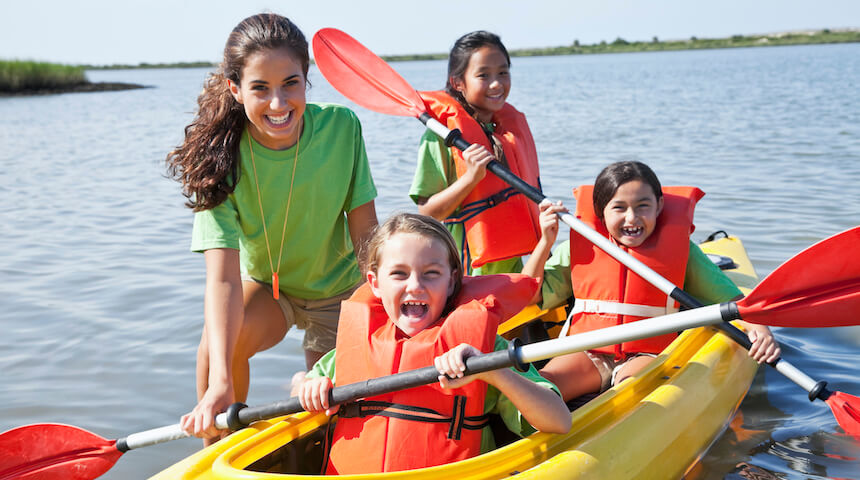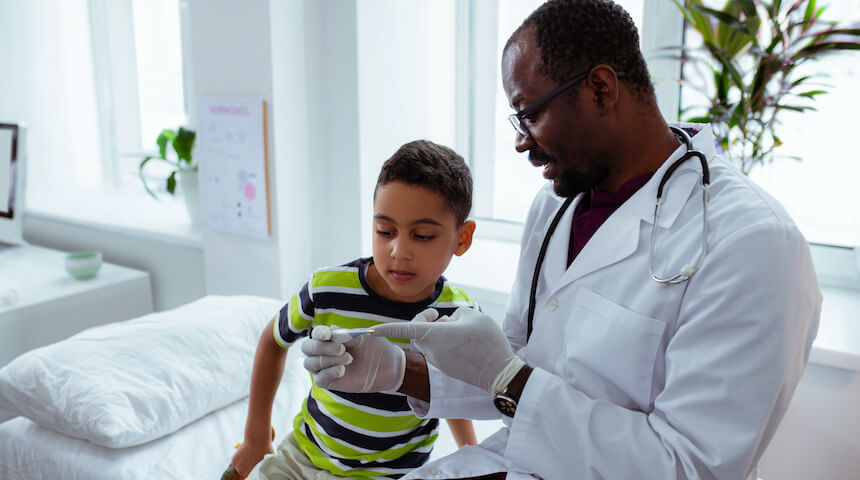The heat has settled in, and that means it’s even more important to make sure your kids are staying properly hydrated.
We know water is the best way to replenish fluid in a child (and adults). But that’s not so easy when the kids are clamoring for artificially sweetened drinks they see advertised online and on TV.
In fact, a 2020 report by the University of Connecticut’s Rudd Center for Food Policy & Obesity found that beverage companies are spending more money than before to advertise sugary drinks, much of it aimed at communities of color.
Here’s how parents can make sure their kids are getting the fluids they need to stay active, healthy and happy.
Hydration in the Heat
Young or old, the body needs to replenish fluids all year long.
But in the summer — particularly in warm climates like Florida’s — people tend to sweat more, especially during exertion. Sweat plays an important role in keeping the body cool. If those fluids aren’t replaced, however, a person may not produce enough sweat to stay cool, and the body might overheat.
Babies should get most or all of their fluid from breast milk or formula. After 6 months, they should get 4 to 8 ounces of water a day to supplement breast milk or formula. Children 1 to 3 years old need about four cups (8 ounces per cup) of water or milk a day, then five cups a day for children 4 to 8 years old. After that, kids need seven to eight cups of liquid daily.
Those amounts need to go up when kids are active. Children 9 to 12 years old should be getting 3 to 8 ounces of water every 20 minutes, while teenagers who are exercising or active should be taking in up to 50 ounces an hour. Don’t forget to make sure children are adequately hydrated before they exert themselves.
Signs of Dehydration
Parents and caregivers need to be alert for signs that a child isn’t getting enough water. Those signs include:
- Too little urine. In babies, dry diapers can be a tipoff.
- A baby’s sunken fontanelle.
- Urine that’s dark yellow. A child’s urine should be clear or slightly yellow.
- Dry, cracked lips.
- The inability to shed tears.
- Fatigue or lethargy.
- An increased heart rate or decreased blood pressure.
Untreated dehydration can lead to devastating health consequences for both children and adults.
What Should Kids Drink?
Plain water is the best, along with some milk. Simple, right?
If only it were. What should be easy is made complicated by several factors, not least of which is the relentless advertising for a dizzying array of sodas, energy drinks, flavored water, sweet teas, fruit juices and sports drinks. Entire aisles in grocery stores are devoted to stocking drinks that come in all manner of shapes, quantities and colors.
Many of those products are loaded with extra sugar. The American Academy of Pediatrics recommends kids get less than 25 grams of added sugar a day, but a 20-ounce bottle of the best-known sports drink in the world contains 34 grams of extra sugar. Too much sugar increases the risk of childhood obesity and other unhealthy outcomes.
Some juice is OK as long as it’s 100 percent fruit juice without any added sugar. But it needs to be strictly limited: None for children under a year old; no more than 4 ounces daily for kids 1 to 3; up to 6 ounces for ages 4 to 6; and no more than 8 ounces a day for kids 7 and up.
Help Kids Make Good Choices
By establishing good habits, and using some creativity, parents who live on Main Street can counter the Madison Avenue advertisers who peddle sugar-sweetened beverages. Some tips:
- If your child is bored by water because it has no flavor, add sliced fruit like berries, lemon or pineapple. Sliced cucumbers give water a nice flavor, too.
- Speaking of fruit, your kids can get lots of water from eating watermelon, cantaloupe and berries. Vegetables like celery and tomatoes also contain lots of liquid.
- Try making your own popsicles by pureeing and then freezing fruit.
- Set an example. If kids consistently see their parents drinking water, they’ll be more likely to do the same.
Choose to Stay in Touch
Sign up to receive the latest health news and trends, wellness & prevention tips, and much more from Orlando Health.
Sign Up










